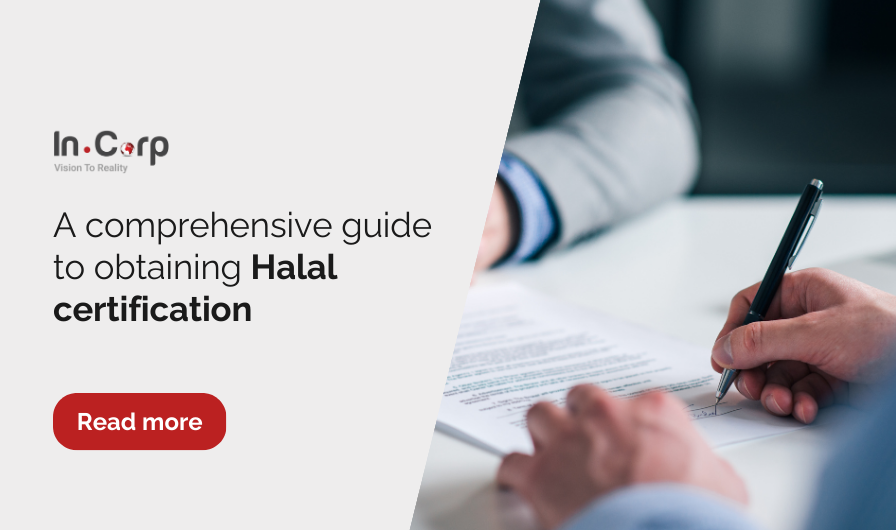In Indonesia, Halal certification is crucial for businesses selling products in specific categories. This certification signifies a commitment to Islamic principles and ensures that the products meet the necessary standards and are free from prohibited substances.
It is an excellent opportunity for businesses to demonstrate their compliance in Indonesia and cater to the needs of their Muslim customers.
New regulation signifies Halal certification
Recently, the Indonesian government implemented new regulations mandating Halal certification for various consumer goods.
Large-scale food, health, and cosmetic businesses must undergo the standard Halal certification process. Failure to comply may result in prohibiting selling goods in the Indonesian market.
Halal certification confirms that products meet Islamic law standards by ensuring they are free from Haram substances. Although businesses can sell products without Halal certification, upcoming deadlines will make certification compulsory.
Food and beverage items are the first to face this requirement, with a deadline of October 17, 2024. Various product categories have differing deadlines, from traditional medicines to clothing and household appliances. Specific deadlines can be found in Government Regulation No. 39/2021.
Benefits of Halal certification

Besides gaining consumer trust, here are several other functions of having a Halal certificate for business products:
Competitive advantage
Obtaining Halal certification can give businesses a competitive edge, particularly over competitors who have not pursued this certification.
Legal proof
It serves as legal evidence for products or services that have adhered to Islamic recommendations and laws, including sourcing raw materials and production processes.
Protection from baseless accusations
The Halal logo’s presence helps shield businesses and products from unfounded allegations.
Consumer decision making
Consumers are more likely to choose your products when purchasing due to the ease of decision-making.
Islamic standards assurance
It guarantees that food, beverages, medicines, and cosmetics are produced according to Islamic standards.
Broader consumer reach
Companies can reach a larger demographic of consumers, mainly Muslim demographics.
Contribution to oversight
Companies with Halal certification contribute to government and religious organizations in overseeing and ensuring products and services provided to the public meet standards.
Official labeling
Companies with official certification can display Halal labels on all marketed product packaging.
Read more: Start investing in Surabaya’s food and beverage industry
Requirements to obtain Halal certification
The documents required for the Halal certification application include the following:
Business entity data
- Business Identification Number (NIB) or other proof of business authorization (tax ID, business permit, industrial business license, investment registration certificate, production notification, etc.)
- Halal supervisor’s copy of ID card, CV, Halal supervisor’s, and appointment decision.
Product information
The product name and type submitted for Halal certification must match the registered name and kind.
Product and ingredient data
- Comprehensive list of raw materials, additives, and auxiliary materials used in production.
- Exemption for natural, unprocessed materials: Low risk for containing prohibited substances.
Product processing procedures
Detailed documentation submitted to BPJPH, including:
- Procurement
- Receipt
- Storage of materials
- Processing
- Packaging
- Storage of finished products
- Distribution
Halal product assurance system
- Implementation and maintenance of a management system to guarantee continuous Halal production processes.
- Responsibility for the system lies with the Head of BPJPH.
Understanding the roles of BPJPH, LPH, and MUI
Understanding the roles of BPJPH, LPH, and MUI is crucial for navigating Halal certification in Indonesia.
BPJPH
The government agency is responsible for overseeing the entire Halal certification process in Indonesia.
LPH (Lembaga Pemeriksa Halal)
Independent institutions accredited by the BPJPH to conduct Halal audits and make recommendations.
MUI (Majelis Ulama Indonesia)
The Indonesian Ulema Council (MUI) is a council of Islamic scholars who review LPH reports and issue fatwas (religious rulings) on the Halal status of products based on Islamic interpretations.
Steps to obtain Halal certification in Indonesia
If you’re looking to obtain a Halal certificate in Indonesia, there are 10 steps that you can follow to achieve your goal. These steps can help you quickly navigate the process and ensure that you meet all the requirements for certification.
| No | Step | Description |
| 1 | Application for STTD to BPJPH | Company to submit the registration receipt (STTD) application with other required documents to BPJPH |
| 2 | Registration to CEROL System | Company to register for Halal inspection to LPPOM MUI through the CEROL system (www.e-lppommui.org) |
| 3 | Preaudit and Payment | LPPOM MUI performs pre-audit to the registration, and the company fulfills the Halal inspection payment |
| 4 | Audit Scheduling | Company and auditor to set and agree on an audit schedule |
| 5 | Audit | The auditor inspects the Halal Assurance System implementation of the company |
| 6 | Auditor Meeting & Lab Analysis | Review the audit result in the auditor meeting and bring the particular sample to a specific laboratory test |
| 7 | HAS Status Decision | Assessment of this adequacy of fulfilling the HAS criteria to be able to proceed to the Fatwa Commission Meeting |
| 8 | Fatwa Commission Meeting | Fatwa Commission to decide the Halalness of the registered products |
| 9 | Halal Decree and HAS Status/Cert Issuance | The company received a Halal decree of product and status for their Halal Assurance System implementation |
| 10 | Halal Certificate Issuance | The company gets a product Halal Certificate |
How to check the MUI Halal certificate online
You can verify the authenticity of a Halal certificate issued by the MUI by visiting the MUI Halal Certification Information System online portal: https://Halalmui.org/en/homepage/
- Enter the certificate number or product name in the search bar.
- The system will display details about the certificate, including its validity period and the issuing LPH.
Obtain your Halal certificate with InCorp Indonesia
Navigating the intricacies of Halal certification in Indonesia can be a daunting task. Recognizing this challenge, InCorp Indonesia is here to simplify and expedite your journey to obtaining this crucial certification.
We offer comprehensive Halal Certification services, including:
- Expert guidance: We guide you through the entire process, ensuring adherence to complex regulations.
- Simplified procedures: We streamline the application process, minimizing bureaucratic hurdles.
- Credibility and trust: By achieving certification, you gain a valuable market advantage and build consumer trust.
Don’t let regulatory complexities hinder your Halal aspirations. Gain market trust and achieve your Halal goals with our expert support.
Get in touch with us.
What you'll get
A prompt response to your inquiry
Knowledge for doing business from local experts
Ongoing support for your business
Disclaimer
The information is provided by PT. Cekindo Business International (“InCorp Indonesia/ we”) for general purpose only and we make no representations or warranties of any kind.
We do not act as an authorized government or non-government provider for official documents and services, which is issued by the Government of the Republic of Indonesia or its appointed officials. We do not promote any official government document or services of the Government of the Republic of Indonesia, including but not limited to, business identifiers, health and welfare assistance programs and benefits, unclaimed tax rebate, electronic travel visa and authorization, passports in this website.



